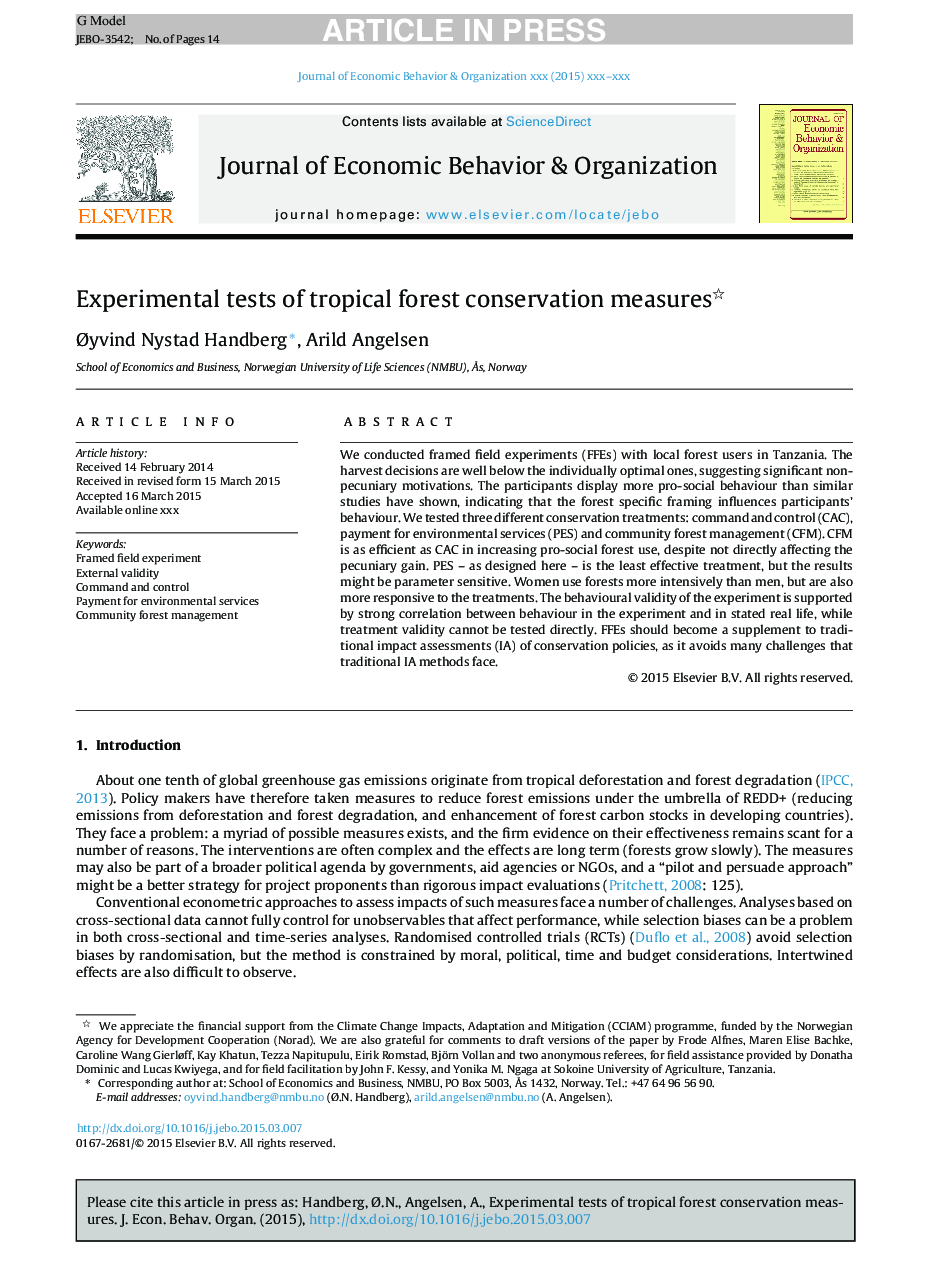| Article ID | Journal | Published Year | Pages | File Type |
|---|---|---|---|---|
| 7243010 | Journal of Economic Behavior & Organization | 2015 | 14 Pages |
Abstract
We conducted framed field experiments (FFEs) with local forest users in Tanzania. The harvest decisions are well below the individually optimal ones, suggesting significant non-pecuniary motivations. The participants display more pro-social behaviour than similar studies have shown, indicating that the forest specific framing influences participants' behaviour. We tested three different conservation treatments: command and control (CAC), payment for environmental services (PES) and community forest management (CFM). CFM is as efficient as CAC in increasing pro-social forest use, despite not directly affecting the pecuniary gain. PES - as designed here - is the least effective treatment, but the results might be parameter sensitive. Women use forests more intensively than men, but are also more responsive to the treatments. The behavioural validity of the experiment is supported by strong correlation between behaviour in the experiment and in stated real life, while treatment validity cannot be tested directly. FFEs should become a supplement to traditional impact assessments (IA) of conservation policies, as it avoids many challenges that traditional IA methods face.
Keywords
Related Topics
Social Sciences and Humanities
Economics, Econometrics and Finance
Economics and Econometrics
Authors
Ãyvind Nystad Handberg, Arild Angelsen,
